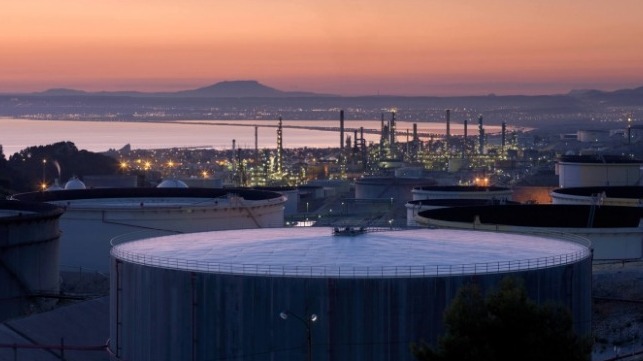Total Starts Production at Converted Biorefinery

Total has started up production at the La Mède biorefinery in southeastern France. The former oil refinery is now a new energies complex, with the transition costing €275 million ($310 million).
The La Mède complex now encompasses:
• A biorefinery with a capacity of 500,000 tonnes of biofuel per year.
• An 8MW solar farm that can supply 13,000 people.
• A unit to produce 50,000 cubic meters per year of AdBlue®, an additive that reduces nitrogen oxide emissions from trucks.
• A logistics and storage hub with a capacity of 1.3 million cubic meters per year that is contributing to business activity at Marseille Fos Port.
• A training center offering real facilities and able to host 2,500 learners a year.
The biorefinery can produce 500,000 tonnes of hydrotreated vegetable oil, a premium biofuel. La Mède will produce both biodiesel and biojet fuel for the aviation industry. It was specifically designed to process all types of oil. Its biofuel feedstock will be 60 to 70 percent from 100 percent sustainable vegetable oils (rapeseed, palm, sunflower, etc.) and 30 to 40 percent from treated waste (animal fats, cooking oil, residues, etc.)
Total has pledged to process no more than 300,000 tonnes of palm oil per year — less than 50 percent of the total volume of raw materials needed — and at least 50,000 tonnes of French-grown rapeseed.
All the oils processed will be certified sustainable to European Union standards. In addition, as part of its palm oil procurement process, Total is introducing initiatives to strengthen control of sustainability and respect for human rights.
Bernard Pinatel, President, Refining & Chemicals, said: “Biofuels are fully renewable and an immediately available solution to cut carbon emissions from ground and air transportation. When produced from sustainable raw materials, as at La Mède, they emit over 50 percent less carbon than fossil fuels. Our biorefinery will allow us to make biofuels in France that were previously imported.”
Total is also working to develop second-generation biofuels to supplement the first-generation biofuels currently used and is examining different biomass conversion pathways such as thermochemical, biotechnology and algae.
On April 1, 2019 Total signed an agreement with Ecoslops S.A., a company that regenerates oil residues into new fuels and light bitumen, that gives the oil major a 25 percent interest in its affiliate Ecoslops Provence. Ecoslops Provence is building a unit to regenerate oil residues at the La Mède complex.
The solution proposed by Ecoslops is based on a unique micro-refining industrial process that transforms these residues into commercial products that meet international standards suitable for port infrastructure, waste collectors and shipowners. The first industrial unit is currently in operation in Sines, Portugal’s principal commercial port.
